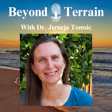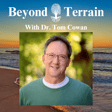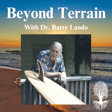
Dr. Gerald Pollack on Structured Water, Biology, and the Limits of Modern Science
In this episode, we’re joined by Dr. Gerald Pollack, renowned researcher and author, to explore the groundbreaking concept of structured water, also known as EZ (Exclusion Zone) water, and its profound implications for biology.
We begin with Dr. Pollack’s background and history, then dive into the discovery of EZ water—a fourth phase of water beyond solid, liquid, and vapor. Dr. Pollack explains how this structured form arises near hydrophilic surfaces and how it fundamentally changes our understanding of biology, from cell function to energy transfer.
We explore practical ways to enhance structured water in the body, including exposure to sunlight, saunas, and grounding, all of which naturally support EZ water formation.
The conversation also touches on the limitations of mainstream cell biology, flawed experimental designs, and the deeper issues with entrenched scientific methodologies—especially the overreliance on electron microscopy and abstract modeling.
This episode is essential for anyone curious about the frontier of water science, the bioelectrical nature of life, and the growing cracks in conventional biological theory. Tune in for an enlightening conversation with Dr. Pollack!
Keep up with me (socials)
https://www.instagram.com/beyond.terrain/
Our vision at Beyond Terrain is best supported by sharing our work!
Joining our private terrain community is also a wonderful way to support what we do here at Beyond Terrain.
https://beyondterrain.com/beyond-terrain-community/
Learn more from and support our esteemed guest, Dr. Pollack
Please consider Supporting Dr. Pollacks Laboratory. Research is not cheap, and good research is hard to come by.
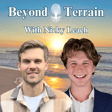


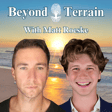


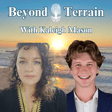



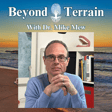
![DNA Doesn't Exist & Genomic Nonsense with Dr. Jerneja Tomsic [Part 2] image](https://media.zencastr.com/cdn-cgi/image/width=112,quality=85/image-files/652933f3a749dc383eb375de/ce5a5fd9-98c9-44fe-9b4b-3d0cd5abcf29.png)


